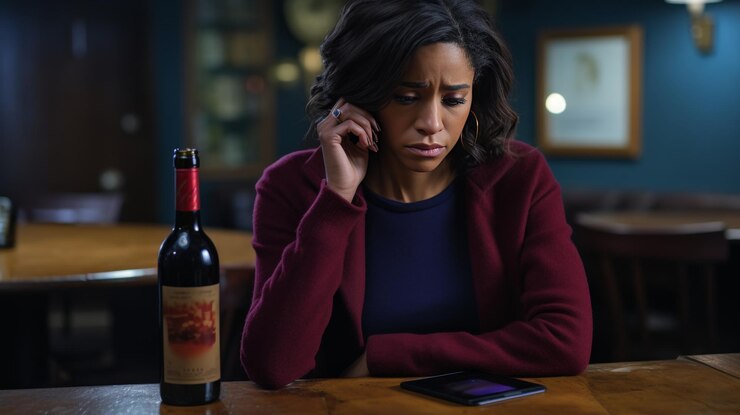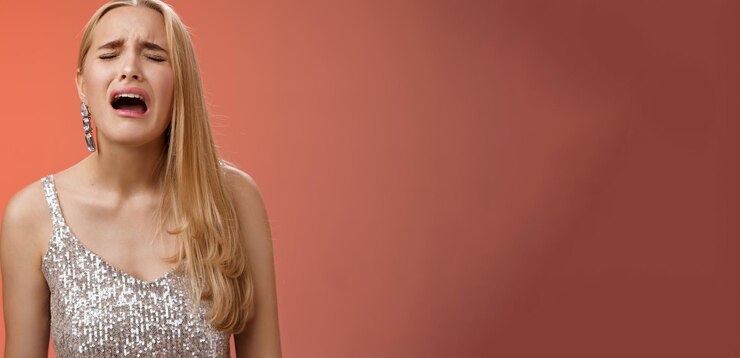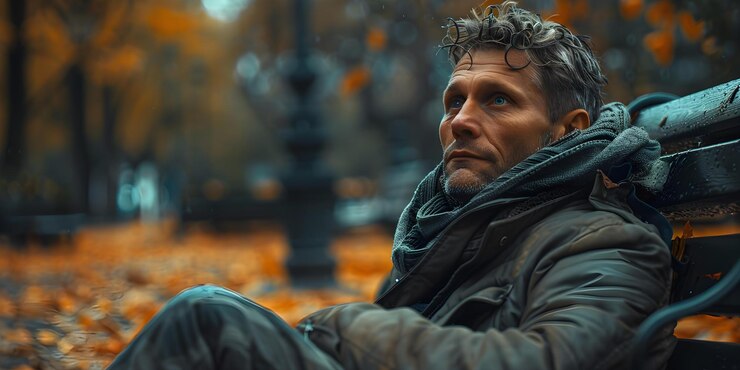Addiction is an epidemic. Statistics show that over 21 million people struggle with substance use disorders annually, yet only about 10% receive treatment. The physical toll, emotional damage, and spiritual void leave millions trapped in a cycle of pain and despair. For many, the hardest part isn’t quitting—it’s finding hope and purpose to live free. I know this because I lived it.
I grew up in a small town where life seemed predictable and safe, but beneath the surface, I carried a growing emptiness. At first, I didn’t recognize it as anything unusual. It was just a dull ache, a sense of never quite fitting in or being enough. I felt like I was searching for something, though I didn’t know what.
My first encounter with substances felt like magic. The buzz made the weight of insecurity lift, and for the first time, I felt light. It was subtle at first—a drink here, a pill there—but over time, it became the answer to everything. A bad day? I used. A celebration? I used. Soon, it wasn’t a choice anymore. It became survival.
The downward spiral came faster than I ever imagined. I started lying to people I loved. I stole to sustain my habit. I pushed away everyone who cared, convincing myself I didn’t need them. In reality, I didn’t want them to see the truth. I was ashamed. I hated myself for what I was becoming, but I didn’t know how to stop.
Every day felt like a battle I couldn’t win. My body craved what my mind knew was killing me. I would promise myself, “This is the last time,” but the moment the pain or emptiness came back, I caved. The worst part wasn’t just the physical addiction—it was the spiritual void it left in its wake. I felt like I’d lost myself. I was hollow, disconnected from the world and from anything greater than me.
One day, I woke up on the floor of my apartment after a particularly bad binge. My body ached, my head pounded, and my phone buzzed endlessly with missed calls and messages from my family. I ignored them all. What could I say? That I was too far gone? That I didn’t believe I could be saved? I lay there staring at the ceiling, wondering if this was it. Was this my life? Was this all it would ever be?
I wanted to scream at the universe. Why me? Why couldn’t I just be normal like everyone else? The anger turned inward. Maybe this was all I deserved. Maybe the people who left me were better off. I started to think the only way out was to give up entirely.
I don’t know how to explain what happened next. It wasn’t a loud voice or a vision, but something inside whispered, Keep going. It wasn’t hope—it felt more like a challenge. But that whisper stayed with me, even as I continued to struggle. I knew I needed something bigger than myself to pull me out of the darkness, but I didn’t know where to look. My faith had been shattered long ago. How could I believe in anything when I didn’t even believe in myself?
Over time, I started noticing the cracks in the walls I had built around myself. A kind word from a stranger. A song that reminded me of who I used to be. Little moments that made me feel, even briefly, like there was still something worth fighting for. But every time I tried to grasp it, my addiction pulled me back under. It felt like trying to climb out of quicksand—every effort only dragged me deeper.
I lost everything—my job, my friends, my dignity. But the hardest loss was the faith I once had in life itself. I couldn’t see a future where I was happy or whole. I stopped believing in the possibility of redemption. I was drowning, and I couldn’t find the surface.
One night, I found myself walking aimlessly through the city. The streets were quiet, the air heavy with the scent of rain. I felt invisible, like a ghost passing through a world I no longer belonged to. As I walked, my thoughts turned darker. Maybe I wasn’t meant to be here. Maybe the world would be better off without me.
But then, I saw something. A flickering light in the window of a small building caught my eye. It was nothing remarkable, just a candle burning on a ledge, but for some reason, it stopped me in my tracks. I stared at it, mesmerized. It reminded me of something I’d long forgotten: hope. It was fragile, barely there, but it existed. And for the first time in years, I let myself believe—just for a moment—that maybe I could exist too.
That was the turning point. It wasn’t a miraculous overnight transformation. It was a long, grueling road filled with setbacks and tears. But that tiny flicker of hope planted a seed in my heart. I began to fight—not just to survive, but to find meaning. I knew I couldn’t do it alone. I needed something bigger than myself, something to anchor me when I felt like giving up.
I wish I could say the road to freedom was easy, but it wasn’t. It broke me in ways I didn’t think I could survive. But it also rebuilt me into someone stronger, someone I never thought I could be. Today, I can look in the mirror and recognize the person staring back at me.
The solutions that helped me transform my life are within reach, but they aren’t magic. They require courage, persistence, and faith. If you’re in the depths of addiction, feeling like there’s no way out, I want you to know this: there is hope. I found it in the unlikeliest of places, and you can too.
Finding Freedom: My Journey to Recovery and Redemption.
When I saw that flickering candlelight in the window that night, I didn’t know it would become the spark to reignite my life. What I did know was that I couldn’t keep living the way I was. Something had to change, and it had to start with me. The road ahead felt insurmountable, but taking the first step—no matter how small—was crucial.
That first step was admitting to myself that I needed help. I stood in front of the mirror the next morning, my reflection barely recognizable. I whispered out loud, “I can’t do this alone anymore.” Saying those words brought an immediate flood of emotions—shame, fear, but also a strange relief. For the first time, I let myself believe I wasn’t hopeless.
I started researching options for support. I learned that addiction thrives in isolation, and breaking its hold requires connection and accountability. I didn’t know who to trust, but I found local support groups listed online. The thought of walking into a room full of strangers terrified me, but I pushed through the fear and showed up.
Walking into that first meeting felt like stepping into the unknown. My hands were shaking, and I wanted to run, but I stayed. The people there didn’t judge me or look at me with pity. Instead, they shared their own stories—raw and real. Hearing their struggles and triumphs gave me hope that recovery wasn’t just possible; it was within reach.
The next step was facing the deeper pain that had driven me to addiction in the first place. I realized I’d been using substances to numb feelings I didn’t want to confront. It wasn’t just about quitting; it was about healing. That meant doing the hard work of looking inward, acknowledging my wounds, and forgiving myself for my past mistakes.
One of the most transformative decisions I made was reconnecting with faith. I had lost my sense of spirituality during the darkest moments of my addiction, but I began to see that finding freedom required something bigger than myself. I didn’t need to have all the answers—I just needed to open the door to possibilities.
I started small, incorporating moments of reflection into my day. At first, it was as simple as sitting quietly for five minutes and allowing myself to feel whatever emotions came up. Gradually, I began exploring spiritual practices that resonated with me. I turned to prayer—not in a formal, ritualistic way, but as a conversation with something greater than myself.
Through this process, I learned that faith isn’t about perfection or having it all together. It’s about trust and surrender, about believing that even in the midst of chaos, there is a path to peace.
Of course, recovery wasn’t linear. There were moments when the cravings felt unbearable, when I questioned if I was strong enough to stay on this path. But I learned to lean on my support system, to reach out instead of retreating. I also started to recognize the triggers that made me vulnerable to relapse. By identifying those triggers and creating healthier coping strategies, I began to rebuild my life piece by piece.
One of the most critical steps in my journey was surrounding myself with positivity. I decluttered not just my physical space but also my mental and emotional environment. That meant cutting ties with people and habits that pulled me back into the shadows and replacing them with uplifting influences.
I also found strength in routines. Structure gave me stability during the unpredictable waves of recovery. Every morning, I set intentions for the day, focusing on gratitude and small victories. Every evening, I reflected on what went well and where I could grow. This simple practice became an anchor, reminding me that progress is built one day at a time.
The more I leaned into faith and spirituality, the more I discovered tools that worked uniquely for me. Meditation became a way to calm my racing thoughts. Journaling helped me process emotions I’d buried for years. I found solace in nature, taking walks that felt like sacred rituals, a reminder of life’s beauty and renewal.
As I grew stronger, I began to dream again—something I hadn’t done in years. I started to see a future filled with possibilities instead of pain. I found new passions, rebuilt relationships, and began to love the person I was becoming.
Everything I’ve shared with you here is part of my personal journey, but there’s so much more I want you to know. My transformation wouldn’t have been complete without the insights and guidance I found in Faith and Freedom: Spiritual Solutions to Overcoming Addiction.
This book isn’t just a collection of ideas—it’s a roadmap for reclaiming your life. It provided me with practical steps to break free from addiction, heal my spirit, and rediscover hope. What I loved most was how it met me where I was, offering encouragement without judgment.
If you’re feeling trapped or overwhelmed, I encourage you to take the leap. Pick up a copy of Faith and Freedom. The solutions within its pages changed my life in ways I couldn’t have imagined, and I believe they can do the same for you. Your journey to freedom starts here. Take the first step—you are worth it.
Told By: Maria Keen.
Journalist: Dennis Max: Fact After Fact Magazine.
I am an accomplished author and journalist at Fact Finders Company . With a passion for research and a talent for writing, I have contributed to numerous non-fiction titles that explore a wide range of topics, from current events, politics and history to science and technology. My work has been widely praised for its accuracy, clarity, and engaging style. Nice Reading here at Fact After Fact.








